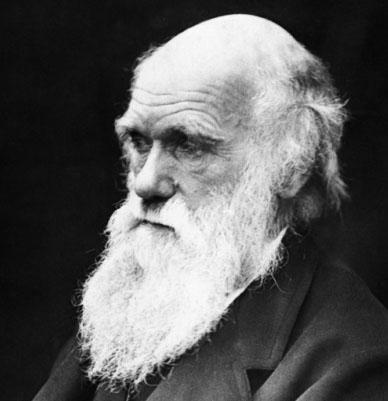Date
12/02/2012
Time
12:00 pm - 5:00 pm
Location
OnePeople.sg

One of the most admired figures in modern science, Charles Darwin is remembered today as the father of modern evolutionary biology. His travels, writings and drawings have opened a new universe of knowledge for us to explore, and allowed us to understand life better than before.
The Humanist Society (Singapore) invites you to celebrate Darwin’s birthday with us. In addition, members can take the opportunity to renew their annual membership.
On this special occasion, we have invited two distinguished speakers to grace our event.
They will be talking about:
1) CAN MORALITY EVOLVE?
By Dr John Elliott
This talk will address the question as to whether there is any basis in human nature for the moral rules and frameworks that are found in all societies. Traditionally, morality has been the preserve of religion, and it is sometimes argued that without religious belief, society would cease to have any basis for morality, and people would inevitably behave in immoral ways. The modern view is that this view is unduly pessimistic, nor is it supported by evidence. It is more likely that the positive contribution of religions has been to harness such propensities, and direct them beyond immediate communities and family to a more universal ideal, rather than to inculcate them in the complete absence of any biological human predispositions.
2) DARWIN’S LIFE AND WHAT HIS WORK REALLY ACHIEVED
By Dr John van Wyhe
Most people have heard of Charles Darwin- the author of The Origin of Species. Yet most of what is commonly believed about Darwin is wrong. He did not discover evolution on the Galapagos; Darwin’s finches were not the turning point; he did not keep his theory secret for 20 years; he did not cheat A.R. Wallace; he was not trying to undermine religion and he was not an atheist. This talk will reveal the real Darwin and outlines what he really said.
ABOUT THE SPEAKERS
JOHN ELLIOTT was born in the UK in 1945, came to Singapore in 1951, and attended ACS (Barker Road) and Bootham School, York. He graduated from Cambridge, UK, with honours in experimental psychology in 1968 and obtained his doctorate in 1975 as a staff candidate at Sheffield University. From 1973 -1976 he was the Psychologist in the then Ministry of Social Affairs, Singapore. After a further 10 years in the Sheffield Department of Psychology, he joined NUS as a Senior Teaching Fellow. He has been Associate Professor in Psychology since 1994. Other activities include Academic Advisor to the UK Open University Psychology degree programme in Singapore; Member, resource panel for the Singapore Police Force Psychology Unit; Member, National Medical Ethics Committee and National Bioethics Advisory Committee, and member, Singapore Childrens’ Society Executive Committee.
JOHN VAN WYHE (B.A., M.A., Ph.D. (Cantab)) is a historian of science and Senior Lecturer in the Departments of Biological Sciences & History and a Fellow of Tembusu College at the National University of Singapore. He is the founder and Director of Darwin Online, Fellow of the Linnean Society of London, Scientific Associate of the Natural History Museum (London) and member of the British Society for the History of Science. His research has challenged several long-standing misconceptions about Darwin, including the traditional view that Darwin was afraid to publish or kept his theory secret for 20 years (see Darwin’s delay). Most recently, with Kees Rookmaaker, he has solved the decades-old mystery of how Darwin could receive Wallace’s Ternate essay on 18 June 1858, and not 3 June 1858 like another letter Wallace sent to F. Bates from Ternate (see the latest issue of the Biological Journal of the Linnean Society).
Source of Speakers’ Biography: National University of Singapore
- Date: Feb 12 (Sunday). Time and location to be announced.
- Entry price: $7 for members, $8 for non-members
- You can RSVP through Facebook, Meetup or email us at info@humanist.org.sg
Charles Robert Darwin FRS (12 February 1809 – 19 April 1882) was an English naturalist who realised that all species of life have descended over time from common ancestors, and proposed the scientific theory that this branching pattern of evolution resulted from a process that he called natural selection. He published his theory with compelling evidence for evolution in his 1859 book On the Origin of Species. The fact that evolution occurs became accepted by the scientific community and much of the general public in his lifetime, but it was not until the emergence of the modern evolutionary synthesis from the 1930s to the 1950s that a broad consensus developed that natural selection was the basic mechanism of evolution. In modified form, Darwin’s scientific discovery is the unifying theory of the life sciences, explaining the diversity of life.




